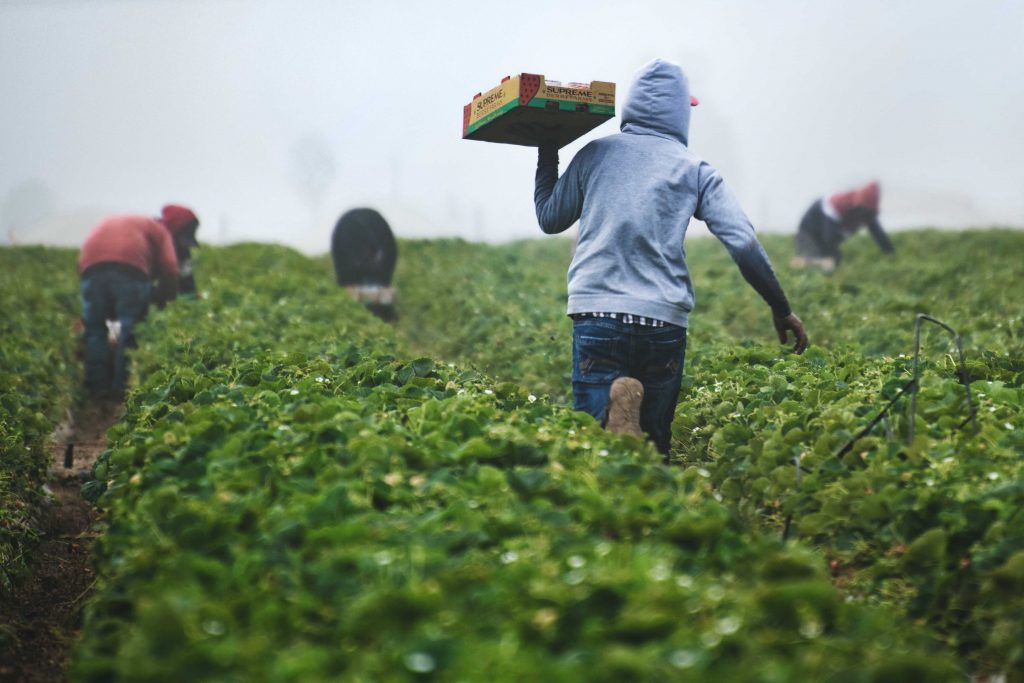Students in BC Law’s Civil Rights Clinic last spring provided research and helped to draft a report authored by the Fairness for Farmworkers Coalition that highlights the need to pass state legislation to improve the lives of Massachusetts farmworkers and their families.
The 45-page report, “The Fruits of the Past,” was released August 30 in support of the Fairness for Farmworkers Act (FFA), which would enhance farmworkers’ labor rights.
According to a statement by the coalition, the historical nationwide exclusion of farmworkers from state and federal wage and hour laws represents the US government’s lack of recognition and respect for an essential workforce in our food-supply chain. The FFA seeks to reverse the trend by guaranteeing basic labor protections for Massachusetts farmworkers, providing three critical improvements in workplace rights.
The first improvement would abolish Massachusetts’ current farmworker-only subminimum wage of $8/hour and require all farmworkers to be paid at least the state standard minimum wage of $13.50/hour to which most other Massachusetts workers are entitled. Additional improvements include instituting overtime payment for seasonal farmworkers after 55 hours of work per week and establishing a day of rest with the option to work at time and a half if the worker so desired.
“The time has come to recognize the invaluable contributions farmworkers make to the Massachusetts economy and abolish the $8 substandard minimum wage that has been allowed for farmworkers in our state,” said Claudia Quintero, a member of the coalition and staff attorney for the Migrant and Seasonal Farmworkers Project at Central West Justice Center, an affiliate of Community Legal Aid.
As a result of their input into “Fruits of the Past,” which details the facts, policies, and reasons to enact the FFA, BC Law students gained valuable experience and shared ownership of an effort that the coalition hopes will be an example for other states to follow.
The Civil Rights Clinic, part of the BC Law’s Center for Experiential Learning, became involved with the coalition through the clinic’s partnership last spring with the Pioneer Valley Worker Center, a member of the coalition. Two law students worked on the report, including Samuel Miano ’21, who said, “The report demonstrates not only the systemic racism and injustice inherent in the farmworker exclusions under current Massachusetts labor laws, but also how these exclusions hurt our communities statewide. I hope that our state representatives recognize this when they read the report and work to pass the FFA.”
“The clinic is so grateful to have had the opportunity to work with the coalition on this important report,” said Professor Reena Parikh, director of the Civil Rights Clinic. “It is unacceptable that under Massachusetts law, farmworkers—who do back-breaking work to put food on our tables—are excluded from important labor protections like minimum wage and overtime pay.”
Photograph by Tim Mossholder


